Events
The events below are populated from several external sites that publicize grant events relevant to organizations like yours. We also have internal events from Kuja. Use the filters to explore the events that are interesting to you and apply to those that you want to attend!
- Activism
- Adult Welfare
- Animal Rights
- Animal welfare
- Arts & Culture
- Arts & Culture / Galleries
- History
- Humanities
- Museum
- Performing arts
- Public arts
- Visual arts
- Basic Care
- Business growth programs
- Charities
- Children & Youth
- Church
- Church Outreach
- Church-Based
- Civil Society
- Clean energy
- Community Philanthropy
- Conflict Areas
- Development Aid
- Digital Products
- Disadvantaged communities
- Displacement
- Economic Development
- Cash programming
- Economic development
- Entrepreneurship
- Job skills training
- Livelihood development
- Economic and Social Development
- Economic and Social Inequalities
- Education
- Adult education
- Early childhood development
- General education
- Higher education
- Language education
- Primary education
- Secondary education
- Vocational training
- Education in Emergencies
- Education/Young women
- Elderly
- Environment and Agriculture
- Agriculture
- Agroforestry
- Biodiversity
- Climate Change
- Conservation
- Environmental Justice
- Fishing
- Food Security
- Food Sovereignty
- Marine Conservation
- Natural Resource Management
- Organic Farming
- Recycling
- Reforestation
- Renewable Energy
- Urban Sustainability
- Waste Collection
- Environment and Agriculture / Zero emission mobility
- Family Planning
- Fitness & Outdoors
- Gender
- Girl activists
- Giving
- Bilateral Aid
- Individual Donation
- Multilateral Aid
- Philanthropy
- Social Impact Investment
- Volunteering
- Governance
- Activism
- Democracy
- Diplomacy
- Elections
- Foreign Policy
- National Security
- Political Movement
- Public Policy
- Health
- Communicable Diseases
- Environmental Health
- HIV/AIDS
- Hunger Alleviation
- Maternal Health
- Health / Maternal and Child Health
- Health / Maternal and Infant Health
- Mental Health
- Newborn Health
- Noncommunicable Diseases
- Nutrition
- Pandemic
- Primary Health
- Public Health
- Reproductive Health
- Sexual Health
- Substance Abuse
- Traditional Medicine
- Water and Sanitation
- Hospices
- Human rights and Protection / Children's Rights
- Human rights and protection
- Child protection and welfare
- Child soldiers
- Human rights and protection / Disability Rights
- Diversity equity and inclusion
- Feminism
- Gender-based violence
- Human rights
- Indigenous rights
- LGBTQ+ rights
- Racial justice
- Sexual exploitation and abuse
- Social justice
- Human rights and protection / Women's leadership
- Women's rights
- Human rights and protection / Youth empowerment
- Youth rights
- Human rights and protection / end FGM/C
- Humanitarian Aid
- Asylum
- Camp Management
- Humanitarian Aid / Disaster Relief
- Disaster Risk Preparedness and Response
- Emergency Response
- Migration
- Refugee Registration
- Resettlement
- Shelter
- Urban Refugees
- Income generation activities
- Internet Access
- Internet Connectivity
- Job creation
- Locally Led Development
- Microfinance
- Misc.
- Advocacy
- Communications
- Research
- Other (fill in)
- Peacebuilding
- Peacekeeping
- Poverty Alleviation
- Public Safety
- Community Resilience
- Conflict Resolution
- Crime Prevention
- Homelessness
- Housing
- Infrastructure Development
- Legal Services
- Refugee Rights
- Rural Development
- Science
- Biology
- Research
- Earth Sciences
- Engineering
- Health Sciences
- Software and IT
- Telecommunications
- Slavery & forced labor
- Social Action
- Social Care
- Social Entrepreneurship
- Social Impact
- Social and Economic Advancement
- Special needs people
- Sustainability
- Technology
- Torture Survivors
- Tree planting
- Underprivileged
- Value Chains
- Vulnerable people
- Water Access
- Water Resilience
- Website Development
- Welfare
- Wildlife Conservation
- Women & Girls
- Women-Led
- civic engagement
- clean water
- disabled
- drugs dependency
- education women & girls
- exports & imports
- female entrepreneurs
- financial inclusion
- human trafficking
- infectious diseases
- internally displaced persons
- leadership building
- media
- medical research
- sick
- sports & recreation
- sustainable improvements
- trade & development
- women empowerment
- young people
A virtual gathering brought together voices from across Latin America to reflect on the region’s philanthropic future.

On April 23, Kuja Platform, an initiative by Adeso, organized a webinar addressing the current challenges of philanthropy in Latin America, featuring key voices from the sector. Participants included Juliana Tinoco, Executive Coordinator of the Socio-Environmental Funds of the Global South | Alianza Fondos del Sur, along with representatives from two member funds, Juan Mira (Fondo Emerger – Colombia) and Facundo Ibarlucía (Red Comunidades Rurales – Argentina), as well as Jonathas Azevedo, Executive Director of Rede Comuá (Brazil).
In a time of profound transformations in international cooperation financing, this webinar aimed to initiate an urgent conversation about the present and future of philanthropy in Latin America. The closure of the Inter-American Foundation (IAF) and the near-total withdrawal of the United States Agency for International Development (USAID) have highlighted the fragility of traditional cooperation models and the need to build new ways to sustain community work.
Throughout the meeting, participants outlined a critical yet hopeful panorama, emphasizing the urgent need to transform the philanthropic system by recognizing the prominence of local solutions and advocating for a real redistribution of power.
The Critical Context of Philanthropy in Latin America
Juan Mira opened the webinar by providing a historical perspective on the successive crises of international cooperation and how these have shaped the field of civil society in recent decades. Drawing from his experience, he highlighted that, although the current crisis is severe, it is not unprecedented, mentioning moments such as post-Rio 92 and the early 2000s, when significant changes in funding flows demanded reinvention and articulation. For him, we are now facing the exhaustion of a centralizing model, which requires recognizing new actors, rethinking modes of operation, and strengthening collective platforms.
Fondo Emerger team presenting the organization and the terms of the Amazonía Resiliente project call in Colombia. Photo: Fondo Emerger Archive.
“Did we need this crisis to act? Or can we seize it to reposition new actors?” he questioned. Juan also emphasized the importance of collective actions over individual ones to transform reality and context, promoting coordination and collaboration among organizations and ensuring the representation of diverse actors.
Facundo Ibarlucía highlighted the powerful collective effort of Latin American organizations in response to the abrupt interruption of international cooperation by the United States. Faced with contract suspensions and demands for resource returns, more than 160 organizations autonomously organized, sharing experiences, conducting diagnostics, mapping impacts, and creating joint responses that enable sustainability alternatives. A phrase from his intervention encapsulates the gravity of the scenario: “More than 60% of the surveyed organizations reported being at risk of disappearing due to contract cancellations.” His call was clear: it is urgent to build greater resilience in the Global South in the face of turbulences imposed by external decisions.
Juliana Tinoco and Jonathas Azevedo presented the Alianza and the Comuá Network as alternatives to traditional international cooperation financing models. They emphasized the importance of local and decolonial funds in addressing the climate crisis and inequality, stressing the need for philanthropy based on solidarity and deep listening to communities. Both underscored the importance of prioritizing historically marginalized groups and strengthening the autonomy of civil society organizations.
Seminars for rural communities, organized by the Banco de Proyectos Comunitarios Rurales (BPCR) of Red Comunidades Rurales, foster active participation and collective learning.
Juliana Tinoco proposed a profound reflection on the current moment. For her, the crisis we are experiencing is not only financial or climatic but also political, value-based, and imaginative. Juliana highlighted how, in Latin America, neoliberalism weakened community solidarity practices and suggested recovering ancestral philosophies like "buen vivir" to face the current crisis. She pointed out that, even in the face of climate urgency, international philanthropy continues to reproduce colonial logics, with centralized power structures, scarce direct resource transfers, and a relationship often evidencing a lack of trust.
In response, she highlighted the transformative role of local funds, which reverse this logic by acting closely, listening to and understanding the demands emerging from territories, reducing and adapting bureaucracy to local realities, and offering technical, political, and financial support in local currency. “The solution to the funding gap will not come solely with more money; it will come with a new way of doing philanthropy,” she affirmed, calling on global foundations and international cooperation to commit to a true redistribution of power.
Jonathas Azevedo provided the Brazilian perspective from Rede Comuá, emphasizing how local funds emerged in response to the withdrawal of international cooperation and the absence of a structured national philanthropy supporting civil society. He noted that these funds are strategic, as they not only channel resources but also strengthen community autonomy and act swiftly in crises.
As an example, he mentioned the work of Fundo Casa Socioambiental with indigenous and community brigades during forest fires in Brazil. “These funds not only make resources viable but propose new foundations for a cooperation system that truly centers the communities and groups we work with in Brazil,” he affirmed, calling for collaboration and solidarity.
Jonathas Azevedo (Comuá Network) and Juliana Tinoco (Alianza Fondos del Sur) at an official COP29 event, highlighting the urgency of mobilizing resources toward locally-led solutions. Photo: Green Africa Youth Organization.
Collective Responses for a Fairer Future
The meeting reaffirmed the essential role of local funds and socio-environmental justice philanthropy as collective responses deeply rooted in territories. Collaborative networks, such as the Alliance and Rede Comuá, demonstrate that it is possible to build alternative financing infrastructures based on trust, respect for peoples' autonomy, and the transformative power of collective action.
Dialogue spaces like this webinar are fundamental for exchanging experiences, strengthening alliances, and advancing toward more democratic, transparent, and effective philanthropy.
We invite you to explore these additional resources from participating organizations and share them with organizations and colleagues who may benefit from them:
As the debate over decolonizing aid and power shifts intensifies, one organization in Kenya stands out as a real-life example of what sustainable community-led development can look like in practice.
In our recent webinar, “Community-led Sustainable Development Organizations: The Case of KCDF,” which was held on the 15th of April, 2025, we explored the history and model of the Kenya Community Development Foundation (KCDF) – a pioneer in community philanthropy and champion of locally rooted solutions for 25 years.
Since 1997, KCDF has been working to build capacity in communities across Kenya to empower them to take control of their own development. Their approach goes beyond traditional finance – emphasizing collective action, wealth building, and local fundraising as key pillars of sustainable change.
Key Takeaways from the Webinar:
Locally Rooted, Community-Owned Solutions
KCDF believes that real change happens when communities take the lead. Their approach goes beyond viewing people as beneficiaries—they are partners, co-creators, and decision-makers. This mindset builds a deeper sense of ownership, trust, and long-term resilience.Building Local Assets for Long-term Impact
By encouraging local giving and helping communities build their own endowment funds, KCDF is paving the way for lasting impact. It’s a powerful step toward reducing reliance on outside aid and ensuring communities can continue their progress—on their own terms.Partnerships that Respect Local Wisdom
KCDF’s partnerships are built on respect and the simple but powerful idea that people know what’s best for their own communities. They listen, learn, and walk alongside grassroots organizations, recognizing local knowledge as a strength, not a gap.Adaptability in Challenging Times
Whether it’s shifting political landscapes or the growing challenges of climate change, KCDF stays responsive and adaptable. Their work evolves with the realities communities face—never losing sight of what matters most.Inspiration for the Global South
KCDF’s story is a reminder that strong, self-reliant communities are not just possible—they’re already here. Their model is a source of inspiration for others across the Global South who are working to build systems that truly put people first.
Missed the conversation? Watch the full webinar here:
https://www.youtube.com/watch?v=Nb0QYq88MwM&t=4s&ab_channel=KUJA
Speakers:
Sarah Martha
Sarah Martha Anyika is a dedicated Community Development Advocate and the Executive Director of Dhamira Moja CBO, a grassroots organization in Busia Countys.
Passionate about partnerships and resource mobilization, she is a certified consultant in Local Fundraising and Resource Mobilization, trained by Wilde Ganzen (Change
The Game Academy) through KCDF. She is also a Lobby and Advocacy Champion with a niche in Gender Responsive Budgeting, advocating for equitable resource allocation to support sustainable community development.
With nine years of experience in community development work, Sarah champions inclusive development that empowers communities to shape their own future. Through her leadership, Dhamira Moja has fostered community-led solutions that drive sustainable development, strengthening grassroots efforts for long-term impact. She holds a Bachelor of Science in Tourism Management.
Caesar Ngule
Current Programmes Director at Kenya Community Development Foundation (KCDF). With over 15 years of experience, Caesar Ngule is an expert in leading high-impact projects and programs.
He is specialized in Organizational Development, Community led Development approaches including facilitating sustainable access to basic services by communities, championing for an enabling environment for Civil Society, and promoting community centric philanthropy that shifts power to communities.
As a seasoned Trainer and Facilitator, Caesar is passionate about experiential learning, employing practical exercises that foster behavior and attitude change. He has held managerial
roles at Food for the Hungry International and Caritas Kenya, successfully designing and implementing health, education, and livelihood programs in diverse communities.
Caesar holds a Master of Arts in Project Planning and Management, a Postgraduate Diploma in Leadership and Management in Community Development, and a Bachelor of Arts in Community Development.
Emily Omudho
Emily is a dedicated community development professional with over 14 years of experience in
designing and overseeing programs for vulnerable communities. She is the Team Leader for Community- Led Development at KCDF in Kenya where she also coordinates Change the Game Academy Program(CtGA). Emily is a passionate advocate for sustainable development and has extensive experience in program management, capacity strengthening, and partnership building.
She has overseen the execution of multi-year initiatives working in close partnerships with government bodies, non-governmental organizations, and community groups to foster sustainable and inclusive development. She has experience using various development models, including Matching grant models, Village Savings and Loans methodologies and is a great champion of community philanthropy.
Emilly is pursuing a Master’s in Social Transformation with a Major in Sustainable Development and holds a Bachelor of Arts in Sustainable Human Development.
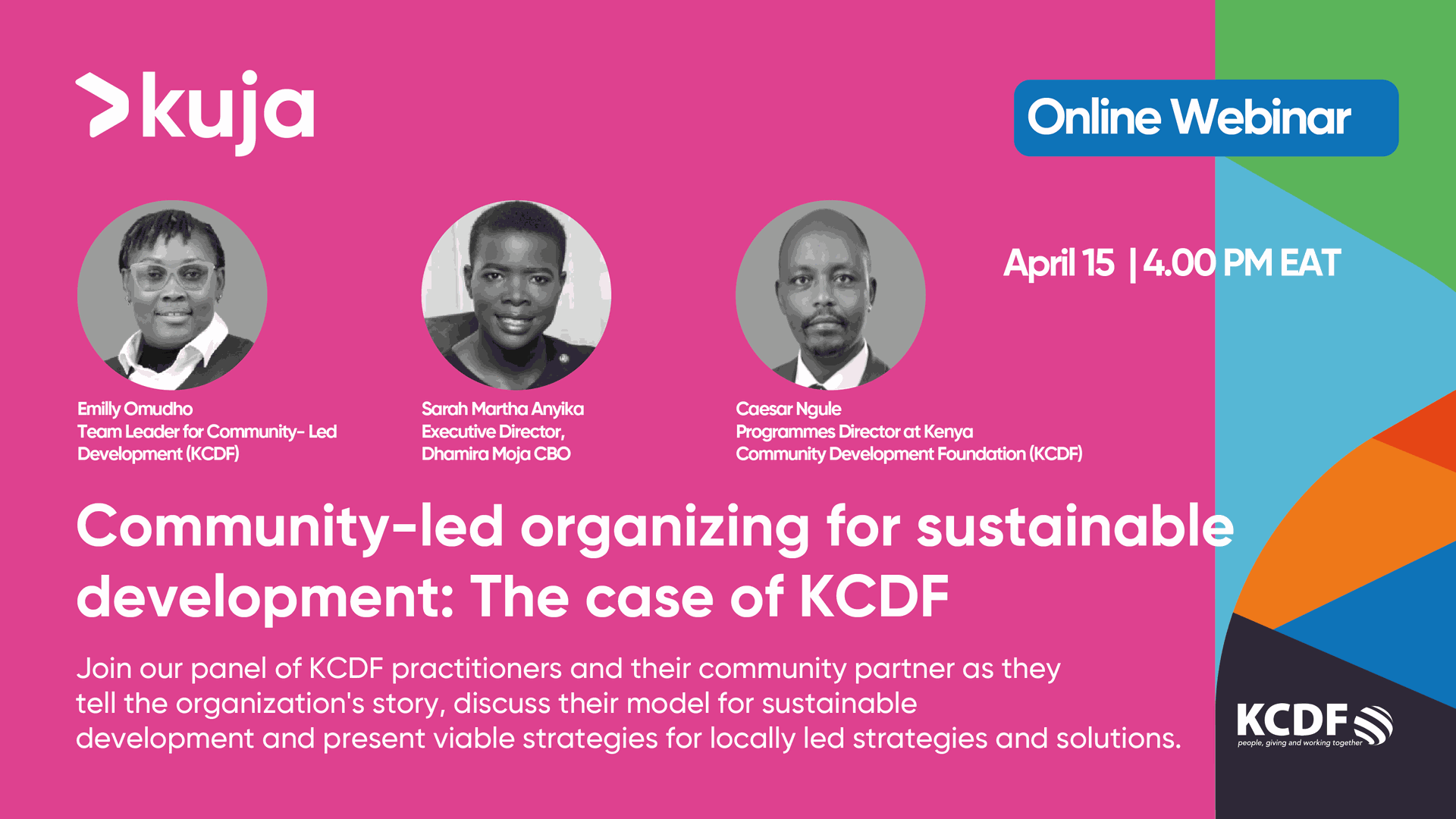
As traditional aid models are increasingly questioned and ignored, countries in the Global South are forging a new path—one led by the people, for the people. On April 3, 2025, Kuja hosted a powerful and timely conversation titled “Community-Led Development That Works: A Spotlight on Haiti.” It featured two Haitian leaders with decades of experience in grassroots community-led development.
The conversation provided key insights into how local leadership, solidarity, mutual aid, and the circular economy can transform development in Haiti.
Watch the Full Webinar Recording on YouTube
https://www.youtube.com/watch?v=HKycMPeFS9c&ab_channel=KUJA
Key Takeaways
✅ Community-led development is not a buzzword—it is a proven path to resilience and autonomy.
Both speakers stressed that when communities set priorities and lead implementation, results are more sustainable and meaningful.
✅Endogenous development respects local knowledge and focuses on human dignity.
Both Jean-Patrick and L’Hérisson rejected top-down approaches that marginalize local knowledge and advocated for models that see communities as co-creators rather than beneficiaries.
✅ There is an urgent need to channel resources to local actors.
As the development aid sector continues to fragment, support for long-standing, locally rooted organizations is increasingly important. These groups already have the trust, infrastructure, and vision needed for long-term transformation.
✅ Haiti’s development model offers lessons for the entire Global South.
From biogas plants to community foundations, speakers’ work stressed that solutions already exist – what is needed now is global solidarity and investment in these models.
Speakers
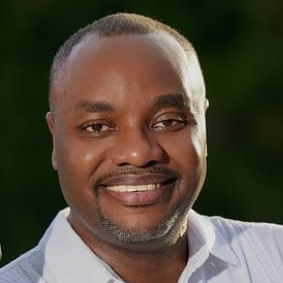
Jean Patrick Lucien
With a background in Computer Engineering from Northeastern University and an MBA, Jean-Patrick has spent over 20 years as an Application Engineer at Siemens Corporation, where he applies his technical skills to solve complex global challenges.
Beyond his corporate career, Jean-Patrick plays a vital role in sustainable development initiatives in Haiti through the EDEM Foundation. His work focuses on education, economic development, and capacity building in Île-à-Vache and southern Haiti, where he owns and operates the Vacation Village Resort and the Village for Innovation, Technology, Education and Sport (VITES), contributing to local tourism and development. One of his key achievements is collaborating with the US Naval Academy to develop biodigesters—innovative systems that convert waste into methane gas for cooking and compost for agricultural use, aligning with Haiti’s sustainability and environmental goals. Currently, Jean-Patrick is leading the Safe Space Project in Haiti, which offers children access to campsites, school gardens, and safe learning environments. This project aims to nurture personal growth, safety, and education, while introducing children to sustainable practices through hands-on agricultural experiences.
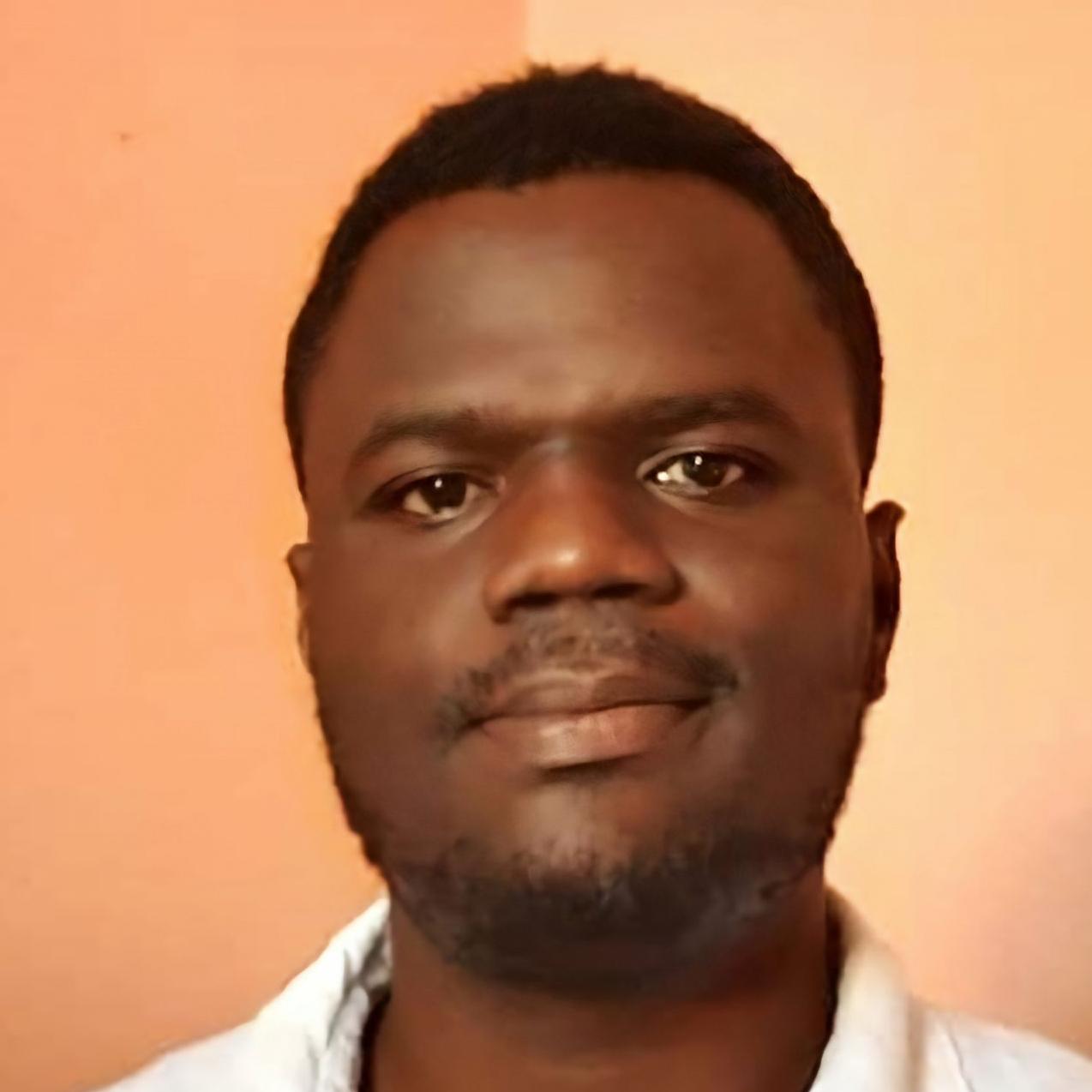
L’Hérisson Hilaire
L’Hérisson Hilaire is a professional agronomist, specialist in plant production, agricultural entrepreneur. L'Hérisson joined the Fondation Communautaire Haïtienne-Espwa/The Haiti Community Foundation (FCH-Espwa) in November 2020 and is its current Executive Director. For more than four years, L’Hérisson has been deeply engaged in community philanthropy and endogenous development with FCH-Espwa in Haiti.
Impact of Funding Cuts in Benin
A conversation with community leaders and local aid professionals on the brutal impact on the sector and the need for structural change.
On March 20, 2025, Kuja hosted its first webinar on our newly launched site! Panelists Bio Yacoubou Bassirou, Moustaphaou Imorou, Djalidou Aboudou Salifou, and Kader Abdel Sabi Pate—local Benin activists and aid professionals—presented the brutal impact of the USAID funding freeze on Benin. Their firsthand insights shed light on how these cuts have affected communities.
When the Kuja team first spoke to the panelists, they were hopeful the funding stop would be temporary. However, by the time of the webinar, they had come to terms with the reality that their projects had been permanently eliminated. Like many local leaders across the Global South, they are now navigating the loss of stability and working to adjust despite the immense challenges.
The Impact on Benin
Francophone Africa is often overlooked in global aid, and Benin was already receiving limited funding—only $77 million from USAID in 2024. Additional support came from the United States African Development Fund (USADF) and the Millennium Challenge Corporation (MCC). The Benin panelists shared how their past projects had directly impacted nearly four million people and indirectly influenced about 65% of the population. With the sudden withdrawal of U.S. aid, the consequences have been devastating across multiple sectors, from health and infrastructure to economic development and national security.
Bio, one of the panelists, described this as a “‘cascade effect,” warning of an impending national famine and extreme poverty. For local aid workers, the crisis is compounded by the lack of a safety net and the responsibility of supporting large families. Despite these setbacks, the panelists shared how they are actively seeking alternative funding sources and exploring in-country and African-based resources to sustain their work.
At the end of the discussion, Kader captured the sentiment of many Global South leaders facing funding uncertainty:
“It is time that each African wakes up and takes care of his own… Our allies from whom we had hoped support, cut their ties with us at a time when we needed them the most… We are planning the future with the resources that we can marshal, and we will do what we need to do little by little. Africans will work together to build Africa’s future.”
Kuja’s webinar underscored the resilience of local organizations and leaders. As aid dynamics continue to shift, these voices must remain at the forefront of conversations about sustainable solutions for the Global South.
Watch the Recording:
https://youtu.be/oSIEUWmD79s?si=4MBc10iTJCq5xyNo
Speakers:
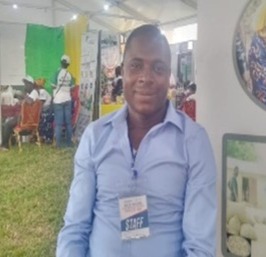
Abdel Kader Sabi Pate:
Capacity Building and Management of Infrastructure and Equipment for SMEs: “with the USADF program” expert.
Agro-economist and project manager specializing in capacity building, innovation, and agricultural project management. Born on December 4, 1990, he has expertise in areas such as agroecology, agricultural advisory services, agricultural cluster value chain management, and environmental protection. He has worked on major projects, including with UNDP, USADF, and CORAF, where he contributed to the resilience of farming communities in the face of climate change and the development of financing strategies for climate-smart agriculture in West Africa.
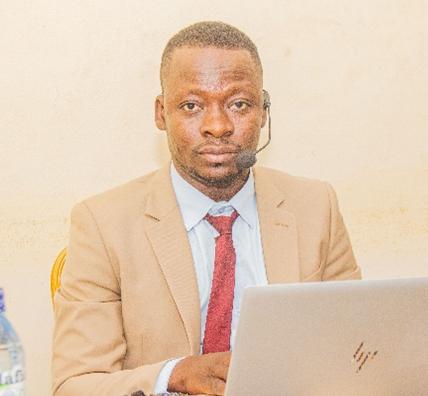
Aboudou Djalidou Salifou:
Countering Violent Extremism & Natural Resources Management Specialist
Expert in project management, peacebuilding, and sustainable development, with over 10 years of experience in the NGO and humanitarian sectors. He holds a PhD in Sustainable Natural Resource Management. Specializing in social cohesion, youth and women's empowerment, and sustainable ecosystem management, he has successfully led strategic initiatives to promote the resilience of vulnerable communities. His commitment has led him to design, implement, and evaluate large-scale projects funded by renowned donors such as USAID, UNDP, and the World Bank.
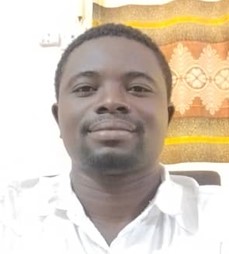
Imorou Moustaphaou:
Specialist in Agroecology and Biodiversity Conservation
After his basic training in Agronomy (specialty: Management of forests and protected areas), Moustaphaou benefits from more than 10 years of practical experience in forest ecology, biodiversity preservation and resilient agriculture with a focus on social standards, having held several positions, the most recent of which is that of Expert in Ecology and Biodiversity with the company GINGER SOFRECO within the framework of “Consultant Services in Program Management and Social Environmental Management” under MCC funding.
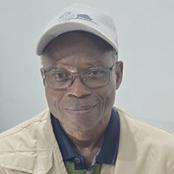
M. Bio Yacoubou Bassirou:
Founder of Maison des Tortues, a Civil Society Network for Civil Society Organizations for the protection of the environment
A leading African activist, advisor and expert in conservation, community mobilization as well as in resource and organizational development, M. Bassirou is a Founding Member of Maison des Tortues, a network of civil society organizations focused on conservation and environmental protection
